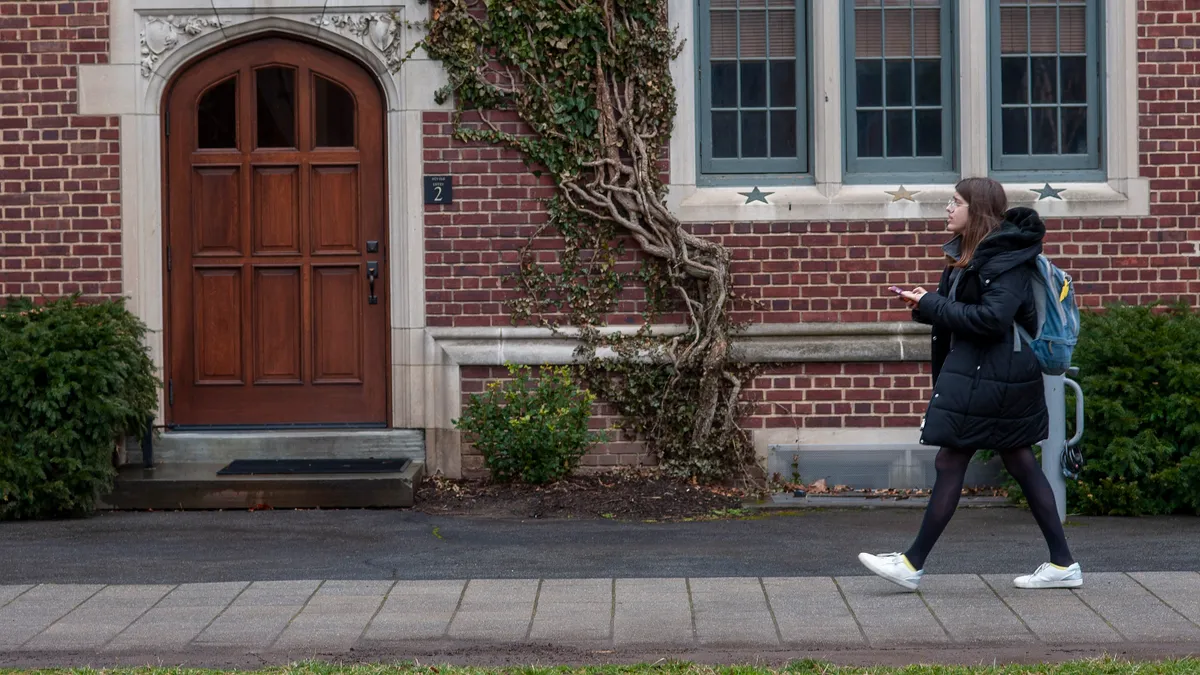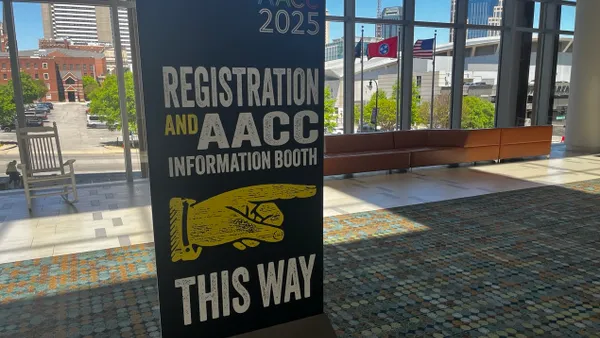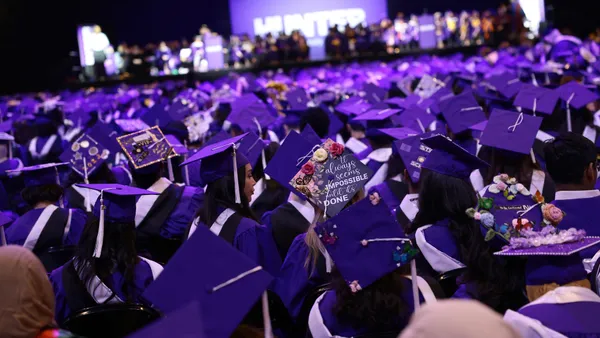Dive Brief:
- The usual suspects — Princeton University, Columbia University, Harvard University and the Massachusetts Institute of Technology — nabbed the top spots in the U.S. News & World Report's annual rankings of the best national universities.
- The publication also made changes to its methodology that will make it easier for some schools that went test-optional to receive full credit for their incoming students' SAT or ACT, which accounts for 5% of the ranking methodology. This means certain schools won't be penalized even if fewer members of their incoming classes sent in scores.
- Higher education experts say the 2022 list still largely rewards the most selective colleges and doesn't do enough to recognize schools that serve large shares of disadvantaged students.
Dive Insight:
U.S. News' national universities ranking remains largely unchanged from last year, with Princeton once again topping the list and other highly ranked institutions usually shuffling around only one or two spots.
The top national liberal arts colleges ranking follows a similar trend, with perennial winners Williams, Amherst and Swarthmore colleges taking the top three spots.
"We can see that this year's list largely reflects last year's list," said Michael Itzkowitz, a higher ed consultant and senior fellow at center-left think tank Third Way. "As far as the top-performing institutions across the United States, they mainly value small, private elite universities that enroll a very small proportion of students."
On the publication's social mobility ranking, the University of California, Riverside was the No. 1 national university. Bennett College, an HBCU in North Carolina, took the top spot among national liberal arts colleges.
U.S. News debuted the social mobility ranking in 2019. And last year, it also increased the weight of two student outcome measures — which include data on graduation rates and social mobility — from 35% to 40% in its formula.
College rankings have been moving toward prioritizing social mobility.
Forbes, which released its annual rankings earlier this month, changed its methodology to reward schools where graduates quickly paid off their college costs. (Itzkowitz worked as a consultant on Forbes' rankings.)
And Washington Monthly, which bills its college rankings as an alternative to U.S. News' list, measures schools based on social mobility, research and opportunities for public service. It also has a ranking of colleges it says offer the best return on investment for nonwealthy students.
But U.S. News didn't answer calls to drop SAT and ACT scores from being included in its ranking formula.
FairTest, an organization advocating for more equitable uses of standardized assessments, last week announced more than 1,700 colleges are not requiring fall of 2022 applicants to submit SAT or ACT scores. Its list includes schools that are temporarily test-optional for the pandemic, as well as colleges that have never required the scores.
In the announcement, FairTest Executive Director Bob Schaeffer questioned whether U.S. News' 2022 rankings would "reflect this new reality." FairTest, along with 10 other higher education-focused organizations, urged U.S. News this summer to drop the scores from its annual rankings.
Instead, U.S. News lowered the threshold of student SAT or ACT submissions colleges needed to receive full credit for their standardized testing performance from 75% to 50%. If a school dips below 50%, the publication will discount its standardized testing value by 15%.
U.S. News is also continuing to rank test-blind schools, which do not consider SAT or ACT scores in admissions decisions, by assigning them a value equal to the lowest test score in their respective rankings, according to the publications' methodology.
The new methodology doesn't deal with the "fundamental problem" of including test scores in rankings, Schaeffer told Higher Ed Dive. "The 15% penalty is a number made up on a roulette wheel," he said. "It's just a way to try to appear to be responding to the test-optional movement."
Still, U.S. News' rankings will likely remain popular with certain students and families.
"They'll continue making some slow changes, but there's a market for what they do," said Robert Kelchen, a higher education professor at the University of Tennessee, Knoxville, and data manager for Washington Monthly's College Guide. "A lot of students and families want to go someplace prestigious, and the U.S. News rankings capture prestige."













